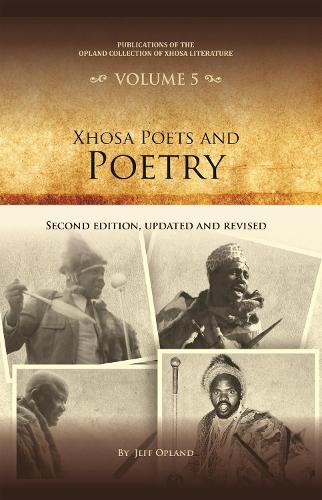Overview
Essays examining the poetry and leading poets of the Xhosa-speaking peoples in the nineteenth and twentieth centuries The Xhosa-speaking peoples who settled along the south-eastern seaboard of South Africa promoted traditions of praise poetry (izibongo), poetry produced orally by men and women, adults and children, about people, clans, ancestors and animals. Throughout the nineteenth century, authors who used the Xhosa language gradually developed the craft of composing poetry for publication in newspapers, and expanded this process in the twentieth century, when books containing secular literature appeared, but the practice of oral poetry persists, flourishing now as it did before the incursion of colonial settlers. The dominant poet in the community is the imbongi, who continues to produce poetry praising or criticising figures of authority on occasions of local and national significance. Xhosa Poets and Poetry (Iimbongi nezibongo) contains fourteen essays originally published between 1974 and 1996. Based on fieldwork conducted between 1969 and 1985, and on extensive archival research, the first six essays examine the social function of poetry in the community, the element of improvisation in the production of poetry, especially in the poetry of the imbongi, and the structural principles of his poetry. Individual poets are then presented, among them D.L.P. Yali-Manisi, Melikaya Mbutuma, Peter Mtuze and Nontsizi Mgqwetho, the first woman to produce a substantial body of poetry. The concluding four essays are thematic, treating issues introduced by the medium of print: the role of newspapers in fostering literature; censorship and control of the press; the damaging effects of changes in Xhosa spelling and the demand for books for school prescription; and, finally, the suspicion in which Xhosa poets held books and writing. This second edition updates the bibliographical references and amplifies some of the arguments. Xhosa Poets and Poetry offers a keen engagement with its subject, enlivened by extracts from conversations with poets and copious examples of their poetry in Xhosa and in English translation. It offers a cultural context for the volumes in this series. University of KwaZulu-Natal Press: Southern African Development Community
Full Product Details
Author: Jeff Opland
Publisher: James Currey
Imprint: James Currey
ISBN: 9781847014504
ISBN 10: 184701450
Pages: 472
Publication Date: 09 December 2025
Audience:
College/higher education
,
Undergraduate
Format: Hardback
Publisher's Status: Forthcoming
Availability: Not yet available

This item is yet to be released. You can pre-order this item and we will dispatch it to you upon its release.
Author Information
JEFF OPLAND held appointments at the University of Cape Town, University of Durban-Westville and Rhodes University and taught at the Universities of Toronto, Yale, and Leipzig as well as Vassar College before his retirement.



